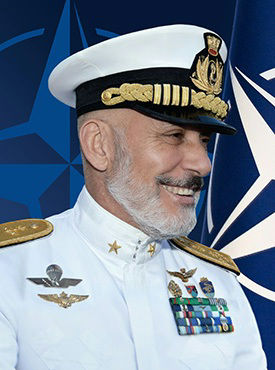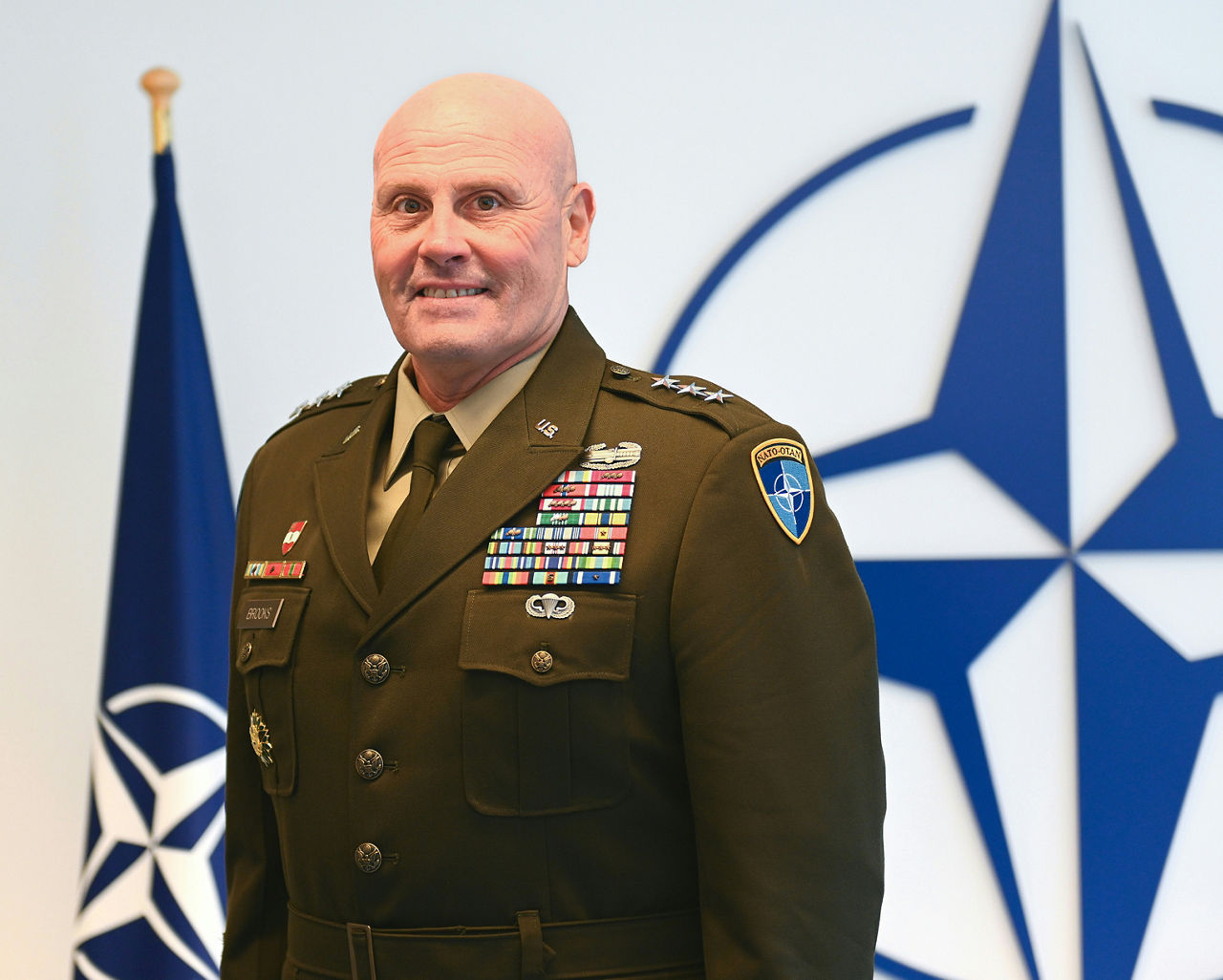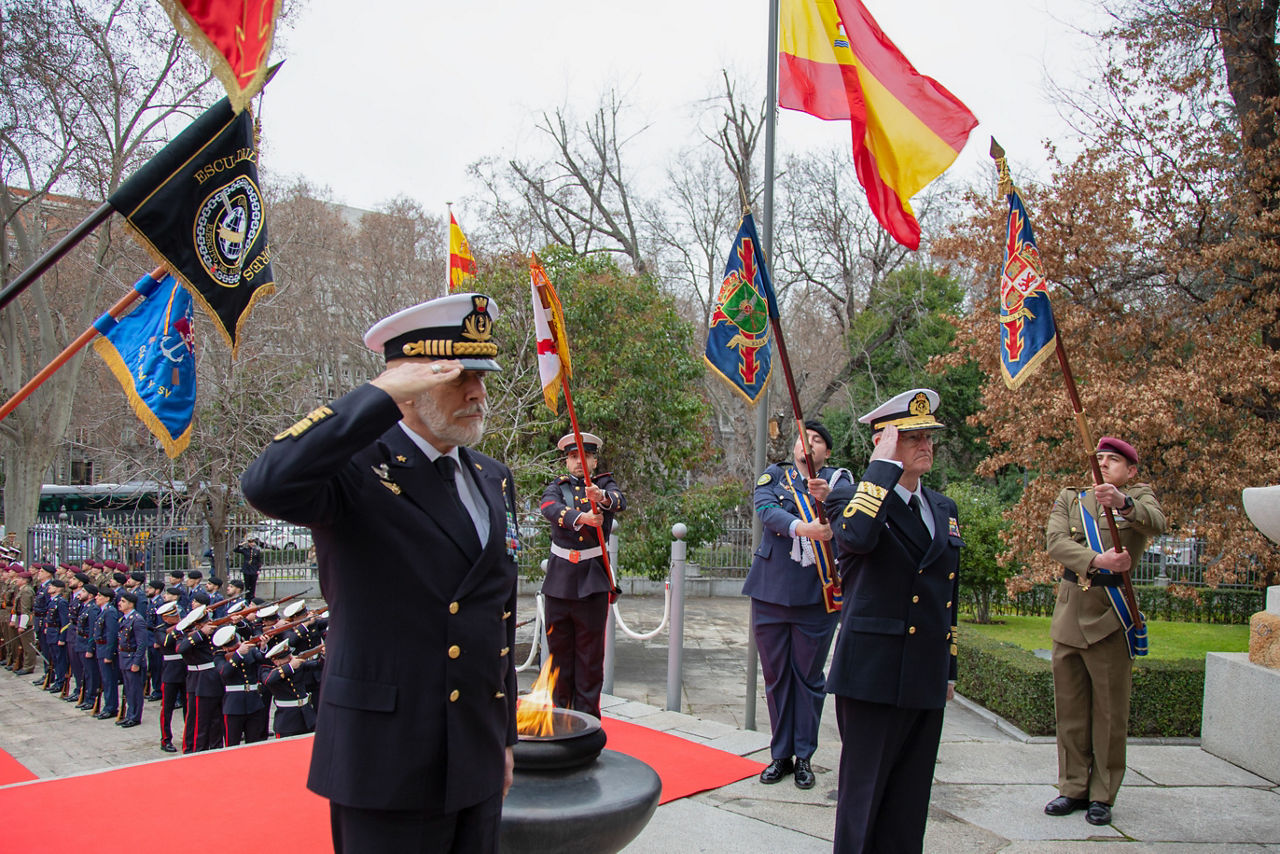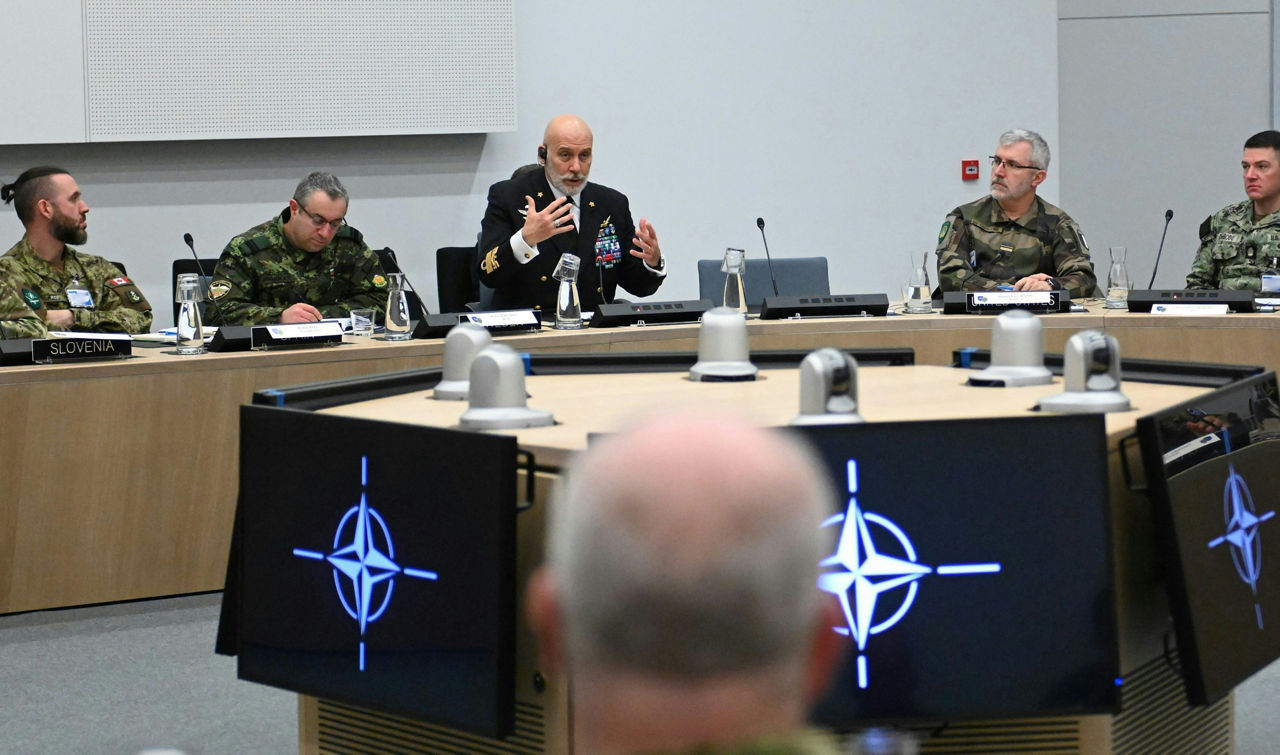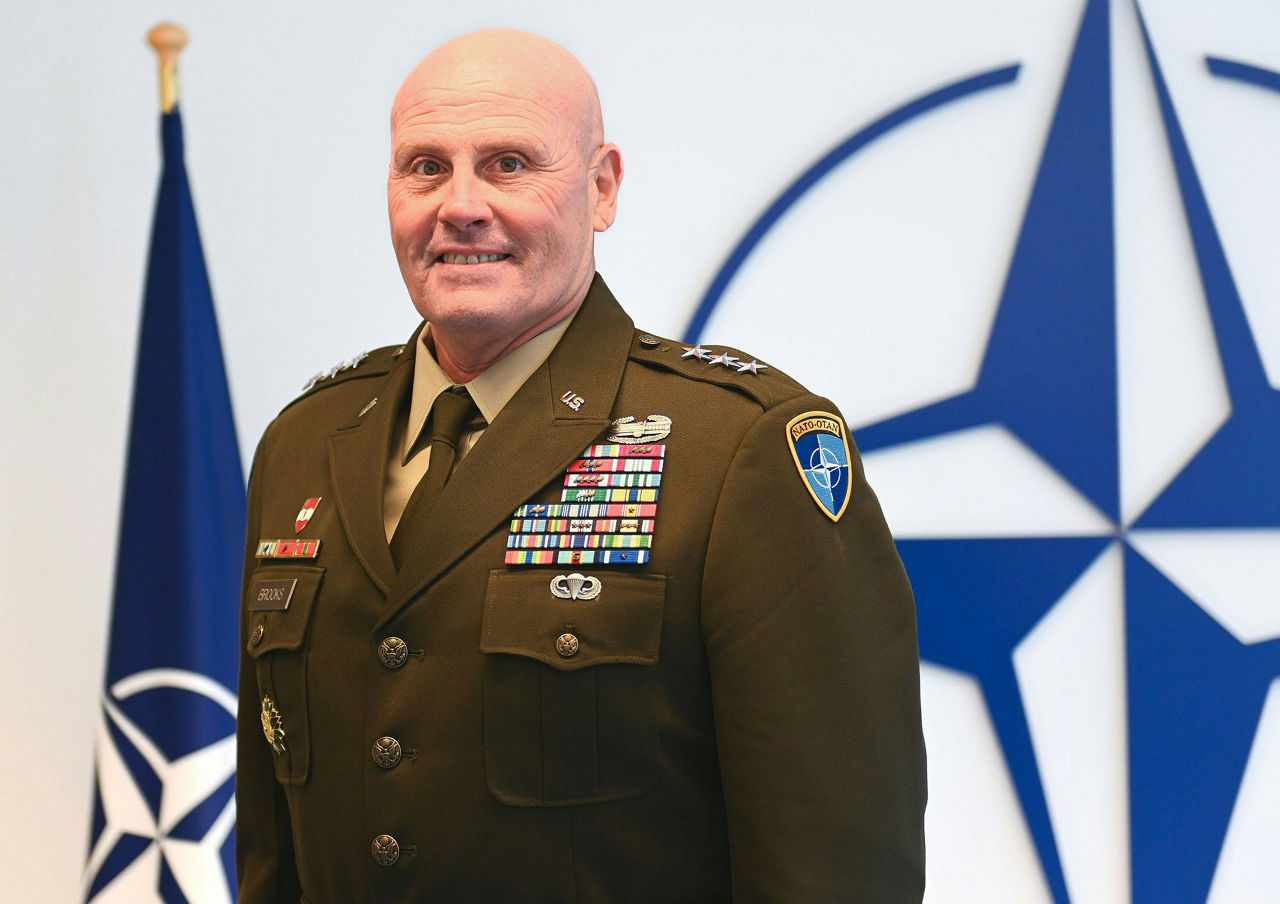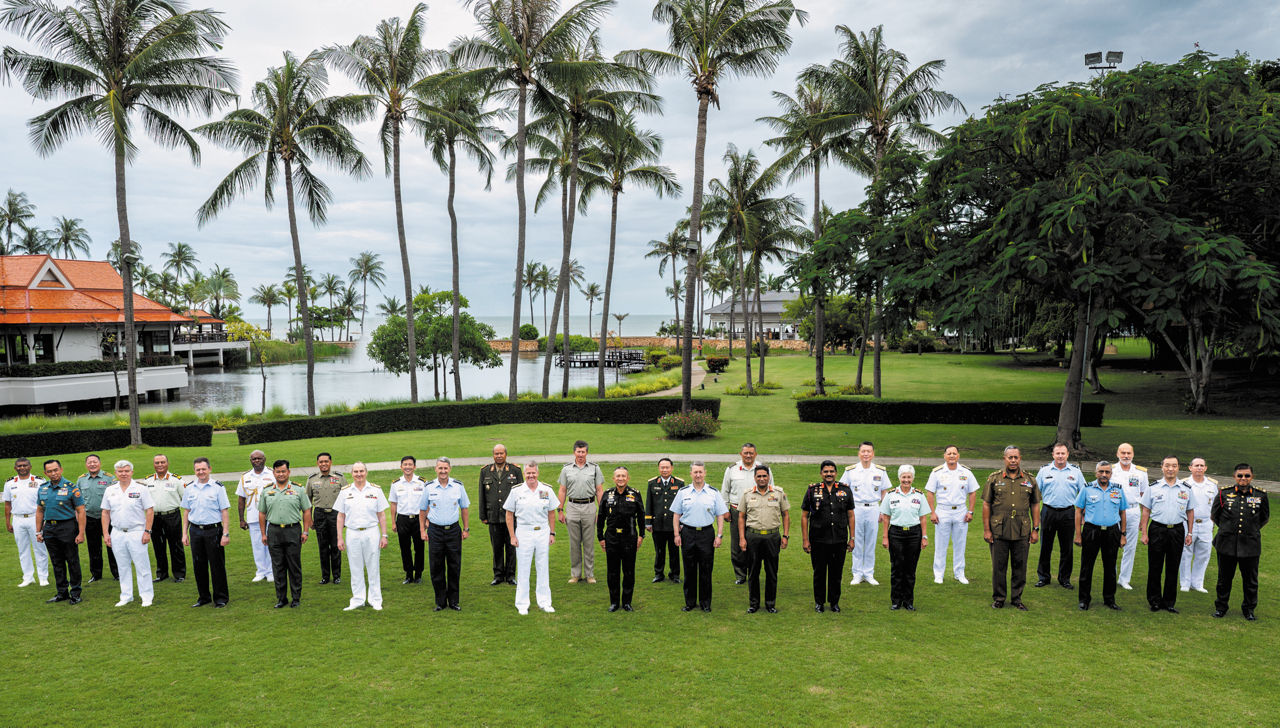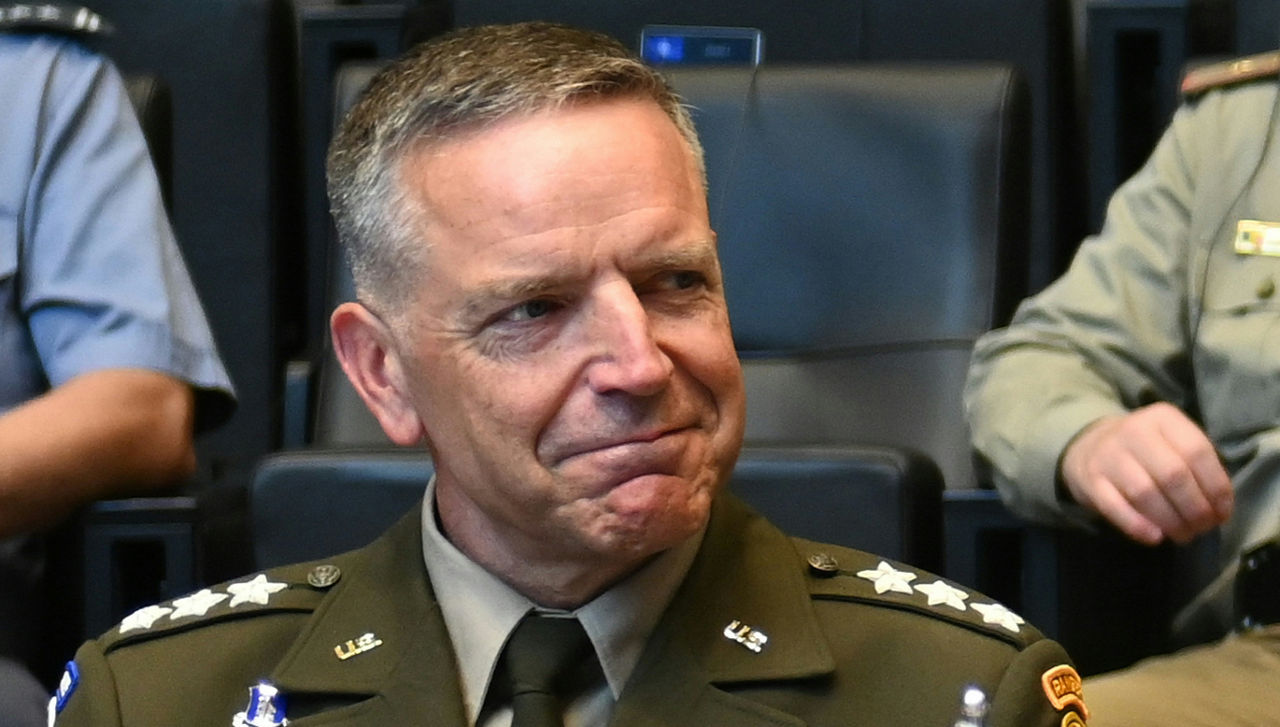Download NATO’s broadcast-quality video content free of charge

Log in
NATO MULTIMEDIA ACCOUNT
Access NATO’s broadcast-quality video content free of charge

Check your inbox and enter verification code
You have successfully created your account
From now on you can download videos from our website
Subscribe to our newsletter
If you would also like to subscribe to the newsletter and receive our latest updates, click on the button below.
Enter the email address you registered with and we will send you a code to reset your password.
Didn't receive a code? Send new Code
The password must be at least 12 characters long, no spaces, include upper/lowercase letters, numbers and symbols.
Your password has been updated
Click the button to return to the page you were on and log in with your new password.
Chair of the Military Committee
Updated: 15 September 2025
The Chair of the Military Committee is NATO’s senior military officer, by virtue of being the principal military adviser to the Secretary General and the conduit through which consensus-based advice from the Chiefs of Defence of all NATO member countries is brought forward to the political decision-making bodies of NATO.
- The Chair is NATO’s senior military officer and the senior military spokesperson for the Alliance on all military matters.
- They are the principal military adviser to the Secretary General.
- They are the conduit through which advice from the Chiefs of Defence of all NATO member countries is presented to the political decision-making bodies and guidance and directives are issued to the Strategic Commanders (Supreme Allied Commander Europe and Supreme Allied Commander Transformation) and the Director General of the International Military Staff.
- They also direct the Military Committee (NATO’s highest military authority), act on its behalf and is the Committee’s spokesperson and representative.
- The current Chair is Admiral Giuseppe Cavo Dragone. He took up his functions on 17 January 2025.

Admiral Giuseppe Cavo Dragone
Born in Arquata Scrivia (Italy) in 1957, Admiral Giuseppe Cavo Dragone joined the Italian Navy in 1976, through the Naval Academy, in Livorno. After graduation, in 1980, he underwent different flight training programs (Italy/USA), and qualified as combat pilot on rotary wing, fixed wing and jet, totaling over 2,500 hours (UH-1L, UH-1N, H3 and Harrier AV8B Plus). His most significant sea duty assignments have been: Flight Commander of MAESTRALE Class Frigates (1986-1987) C.O. of Minehunter MILAZZO (1987-1988) C.O. of AV8B Squadron (1991-1993) (1997-1998) C.O. of Frigate EURO (1996-1997) C.O. of Aircraft Carrier GARIBALDI (2002-2004) His major assignments include: Navy General Staff Air Warfare and Naval Air Force Commander Commander of the Italian Navy Special Forces (COMSUBIN) (2008-11) Admiral Superintendent of the Italian Naval Academy (2012-14) Commander of the Italian Joint Special Forces Operations Headquarters (2014-16) Commander of the Italian Joint Operations Headquarters (2016-19) Chief of the Italian Navy (2019-21) Italian Chief of Defense (2021-24) Since Jan 17, 2025, he is the 34th Chair of the NATO Military Committee (MC, NATO’s highest military authority). In his role, he is the principal military adviser to the Secretary General, as NATO’s senior military officer, and the principal military spokesperson for the Alliance, on all military matters. Acting on behalf of the Military Committee, he is the conduit through which the military advice from the Chiefs of Defense of all NATO member countries is presented to the political decision-making bodies, and guidance and directives are issued to the Strategic Commanders (Supreme Allied Commander Europe-SACEUR, and Supreme Allied Commander Transformation-SACT), and the Director General of the International Military Staff-DGIMS. Admiral Cavo Dragone holds two master’s degrees (Naval and Maritime Sciences, and Political Sciences), he is a qualified military paratrooper and scuba diver, free-fall skydiver and karate black-belt. Admiral Cavo Dragone is married to Rosa and they have two sons and one daughter: Michele, Umberto and Ginevra Francesca.
Tasks and responsibilities
The Chair’s authority stems from the Military Committee, to which they are responsible in the performance of the duties that come with the position.
They chair all meetings of the Military Committee and, in their absence, the Deputy Chair of the Military Committee takes the chair.
The Chair of the Military Committee is both its spokesperson and representative. They act on behalf of the Committee in issuing the necessary directives and guidance both to the Director General of the International Military Staff and to NATO’s Strategic Commanders. They represent the Military Committee at the North Atlantic Council (NATO’s highest political decision-making body), and other high-level political meetings, such as the Nuclear Planning Group, providing consensus-based advice on military matters when required.
By virtue of their appointment, the Chair of the Committee also has an important public role and is the senior military spokesperson for the Alliance. They undertake official visits and representational duties on behalf of the Committee, meeting with government officials and senior military officers in both NATO countries and in countries with which NATO is developing closer contacts in the framework of formal partnerships, for instance the Partnership for Peace programme and the Euro-Atlantic Partnership Council, and with non-NATO troop-contributing countries to NATO operations.
They are also the Chair of the Academic Advisory Board of the NATO Defense College.
Selection process and mandate
The Chair of the Military Committee is elected from among the NATO Chiefs of Defence and appointed for a three-year term of office. They must have served as Chief of defence – or an equivalent capacity – in their own country and is traditionally a non-US officer of four-star rank or national equivalent.


